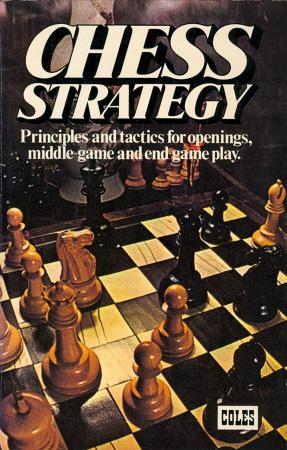
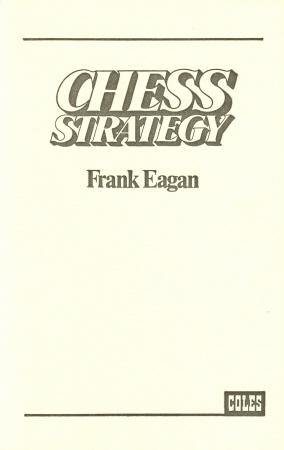
Edward Winter
At the Chess Café Bulletin Board in May 2002 Rick Kennedy reported that in 1976 Coles Publishing Company Inc. brought out a book entitled Chess Strategy by Frank Eagan which was, in fact, a verbatim reproduction of Capablanca’s Chess Fundamentals. We have procured a copy of the Coles volume and find that, apart from the title page, the entire contents are identical to the crown octavo edition of Chess Fundamentals (i.e. the 184-page version first produced by G. Bell in 1951).


The copyright page (‘Copyright 1976 and published by Coles Publishing Company Limited Toronto – Canada’) also has, in tiny letters, ‘Originally published by G. Bell & Sons Ltd. London England’, but neither Capablanca’s name nor the title Chess Fundamentals is given anywhere.
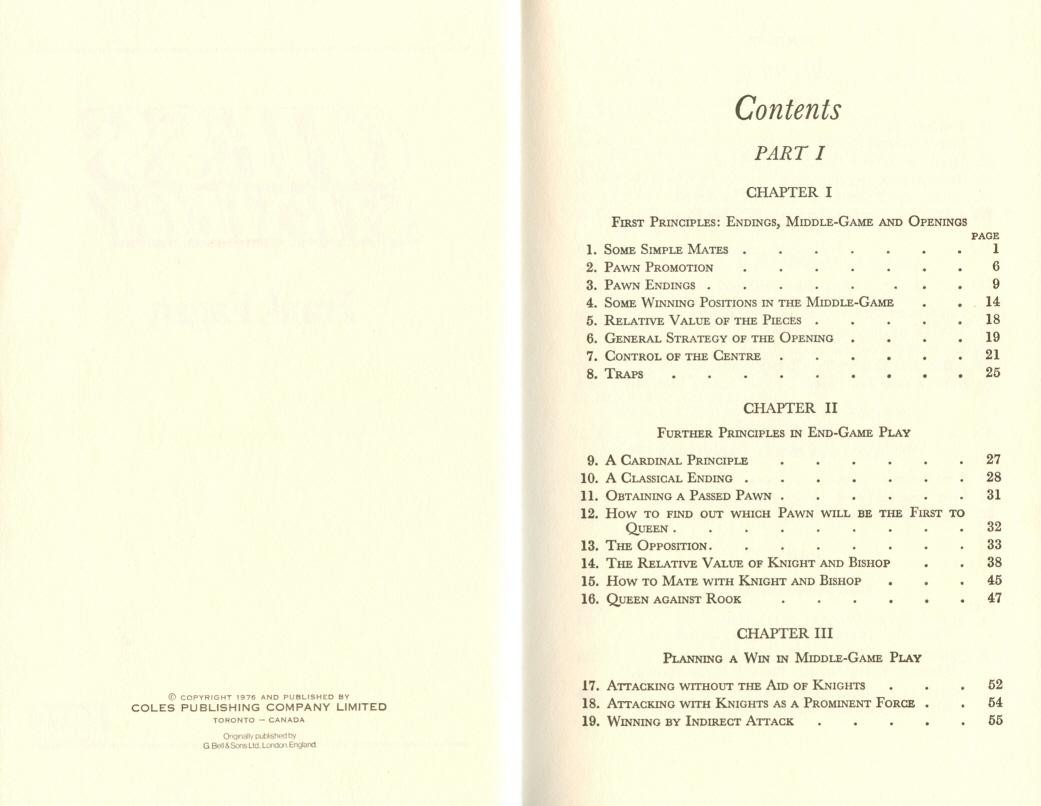
The publishers of this outrage are/were an internationally-known company, the producers of the ‘Coles Notes’ series of booklets of literary criticism. How did such fraud occur and, apparently, remain unnoticed (bearing in mind, incidentally, that in 1976 the company G. Bell was still producing chess books)? And who is Frank Eagan?
In 1980 Coles reissued Chess Strategy and belatedly put Capablanca’s name on the title page.
Another chess book published by Coles in 1976 came into our hands: Play Winning Chess by Brian Drew.
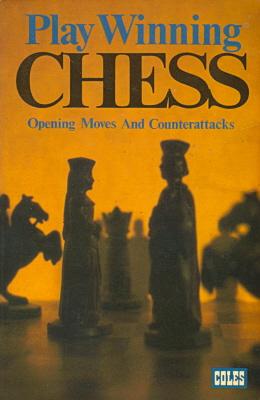
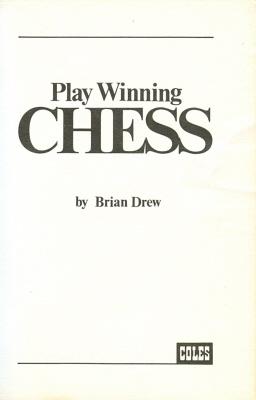
We at once recognized the contents as identical to Chess in an Hour by F.J. Marshall and I. Chernev (published by Arco, New York in 1968 and 1975). ‘Identical’, that is, with one significant exception. Page 47 of the earlier volume had the following note:
‘The new material found in pages 48 through 93 was compiled and prepared expressly for this newly revised edition by Irving Chernev.’
That has been deleted from the Coles edition and, indeed, there is no mention of either Chernev or Marshall as the authors. It may be recalled here that Marshall’s original book was published in 1937 and that at the time Coles introduced ‘Brian Drew’ to the chess world Irving Chernev was still alive.
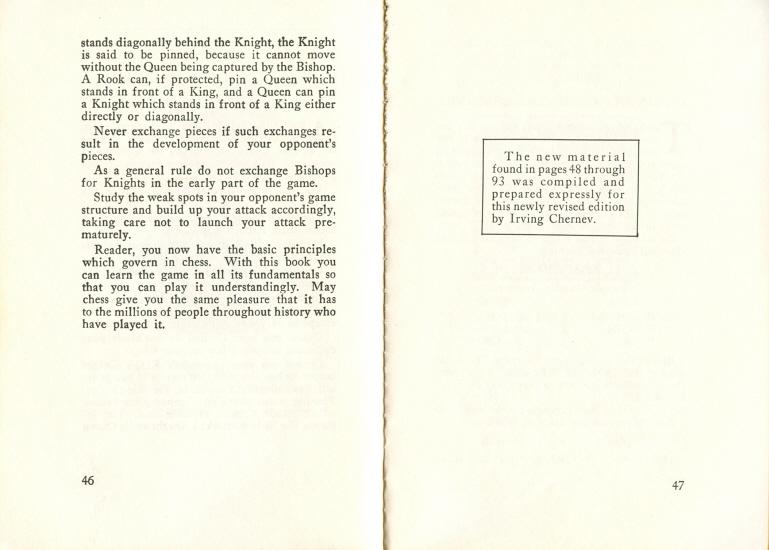
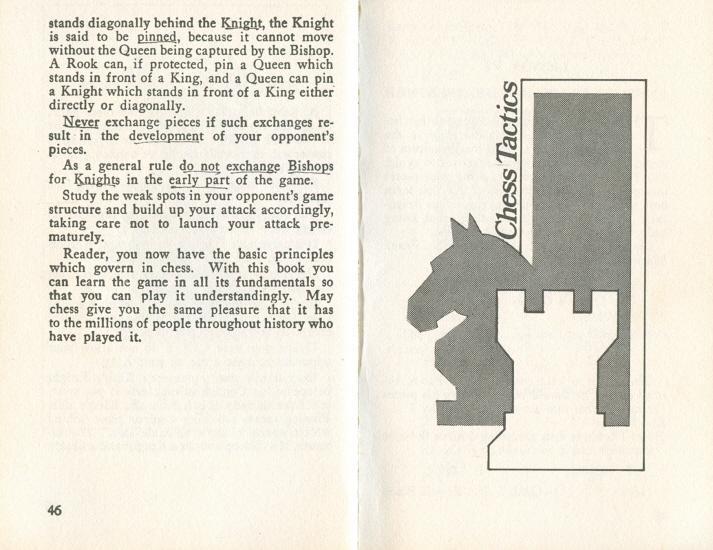
In 1976 Coles also brought out ‘Two Weeks To Winning Chess by Thomas E. Kean’. The title repeats an old one of Reinfeld’s, but the contents are, from start to finish, a direct reproduction of the well-known introductory book Chess by R.F. Green.
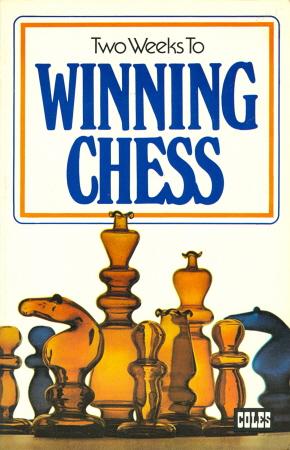
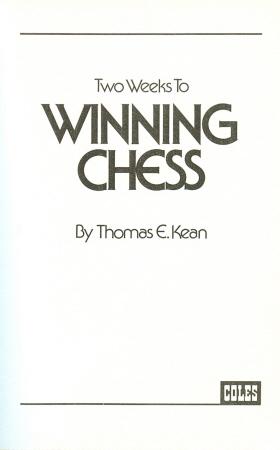
Below are the opening pages of the Green book (1938 edition) and the Kean one (1976). The concluding words (‘Free use has, necessarily, been made of standard works on the game’) take on a whole new meaning in the light of Coles’ practices.
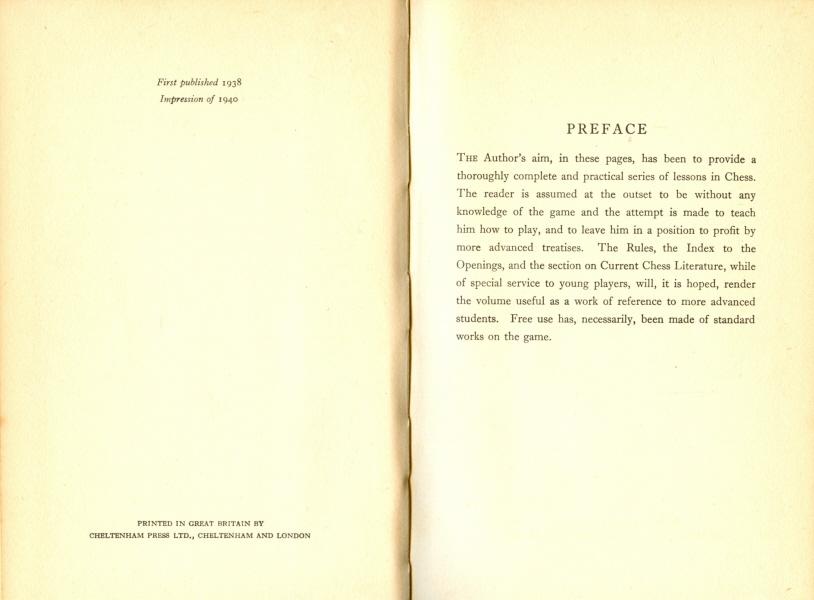

Not that Coles has always changed, or invented, authors’ names. We also acquired its 1979 volume Chess Problems for Beginner or Expert by John M. Rice. In small letters on the copyright page (yes, Coles books always have one of those…) it is stated that the work was ‘Originally published by Faber & Faber’. Indeed. The text, all 349 pages of it, is identical to John Rice’s 1970 work An ABC of Chess Problems.
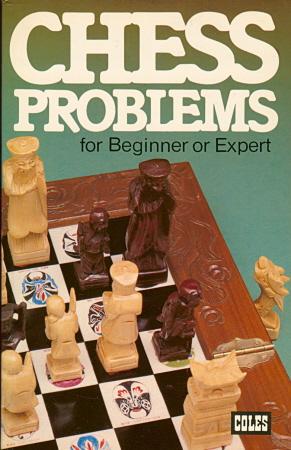
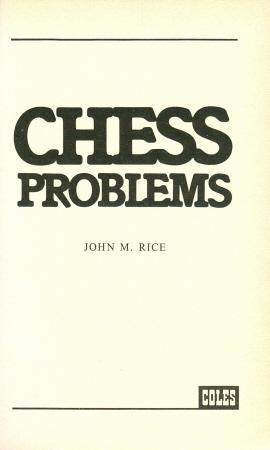
We asked Mr Rice whether he had authorized the Coles edition of his book, and he replied that he was not even aware of it. He also mentioned to us a similar experience:
‘An American publisher, Citadel of New York, was found to have produced a pirated edition of the Faber book Chess Problems: Introduction to an Art, on which I worked in the 1960s with Michael Lipton and Robin Matthews. In this instance the piracy was discovered and Faber managed to extract a royalties payment from Citadel.’
Yet another example of Coles’ misconduct is its publication in 1980 of ‘Teach yourself Chess by John Love’. This turns out to be a reprint of Love’s book Chess A New Introduction (published by Bell in 1967).
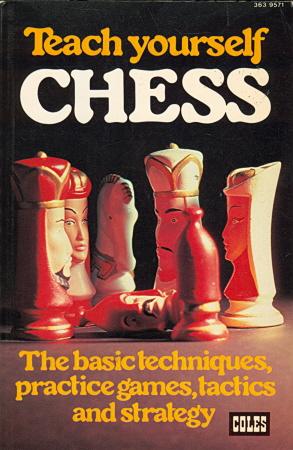
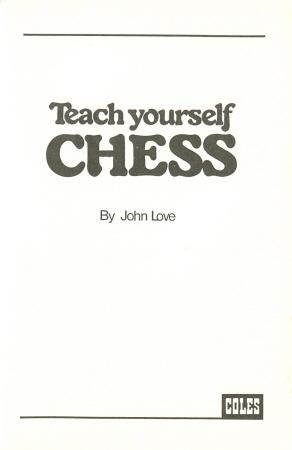
We asked Mr Love whether he was aware of the later edition, and he replied:
‘No, I knew nothing about this Coles publication. As you can imagine, I was more than a little surprised by the contents, not least by the thought that I’d ever written anything worth stealing.’
This article is an edited digest of C.N.s 2657, 2689, 2711, 2736 and 2754.
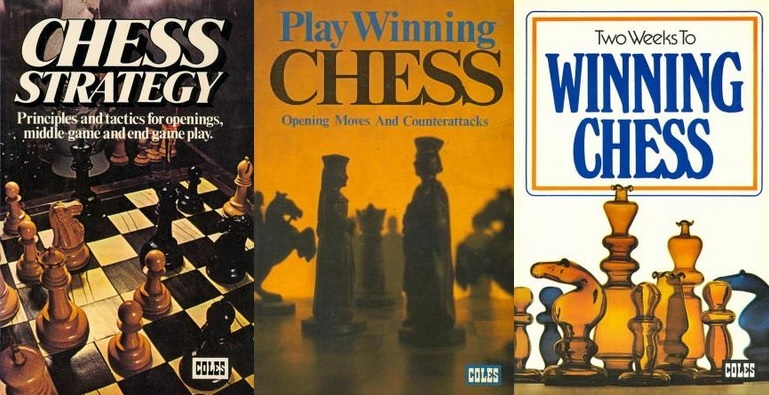
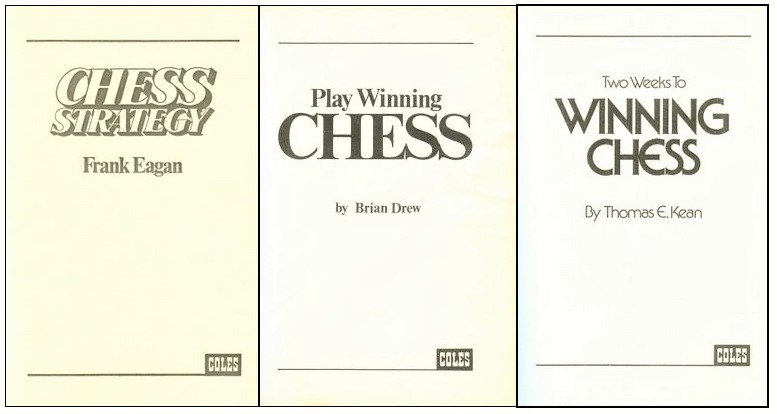
To the Chess Notes main page.
To the Archives for other feature articles.
Copyright: Edward Winter. All rights reserved.